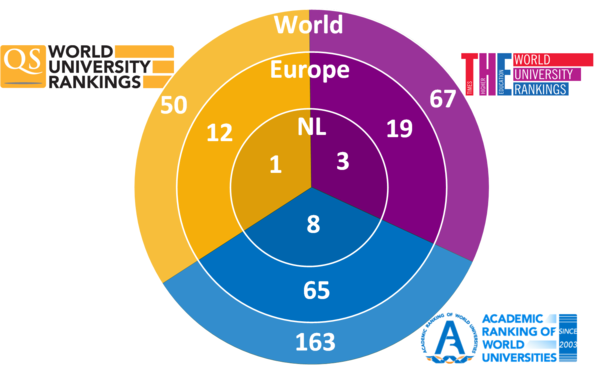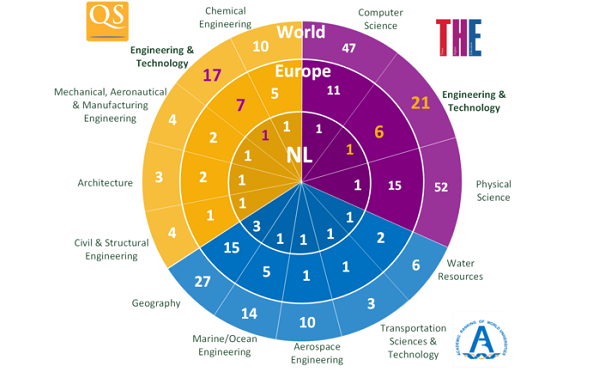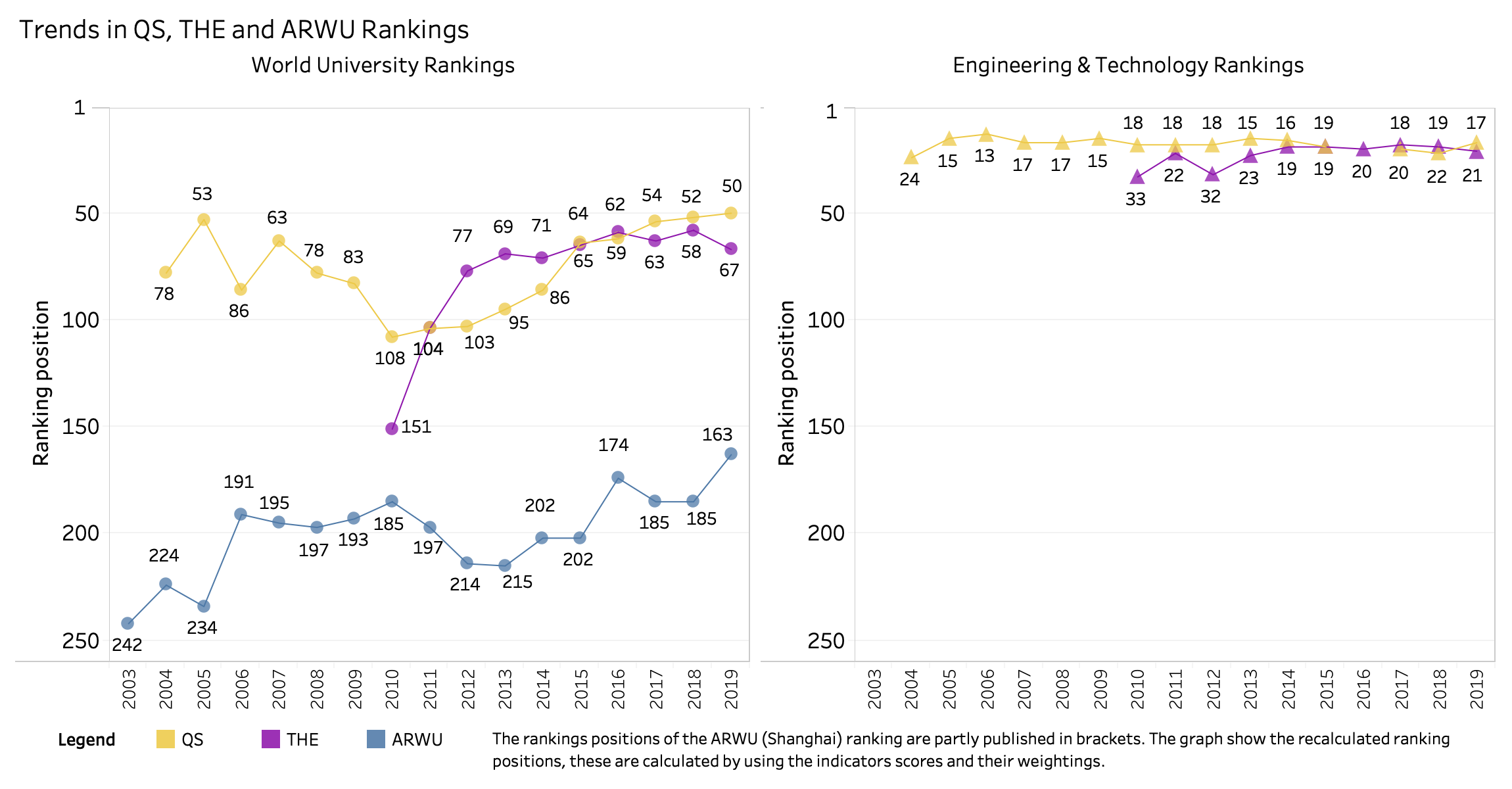TU Delft and university rankings
TU Delft is doing well in international university rankings and we are proud of that, says President of the Executive Board Prof. Tim van der Hagen. “We want to maintain and, where possible, improve our strong position in these rankings.”
How important is a university’s position in these international rankings? And what does it actually mean? “A position in the rankings is not in itself a goal. It should be a logical consequence of our educational and research efforts to meet the needs of society,” says Van der Hagen.
International students use rankings to compare universities so that they can make their choices. Scientists also prefer to work at institutes that do well in leading rankings. Rankings therefore help attract top talent from home and abroad. And employers are giving more weight to a university’s ranking to see where their applicants studied.”
Van der Hagen continues. “TU Delft is well placed in many rankings and our 100,000 engineers across the world and we should be very proud of this. At the same time, we should also be a little cautious.”
There are many organisations that compile the rankings and new rankings are added regularly, each with a different focus. The position of a university can change dramatically between these rankings. It’s sometimes hard to see the wood for the trees and it makes you wonder how these rankings work.
The organisations behind the rankings make choices and assumptions on which to base their assessments. They use subjectively chosen quantitative indicators that are supposed to give an indication of the quality.
Set rankings and multi-year perspective
For TU Delft, three international rankings are particularly important. These are the Quacquarelli Symonds (QS), the Times Higher Education (THE) and the Shanghai Ranking (ARWU). Internationally, these are the best known rankings. They have track records and are fairly consistent in terms of methodology and publishing. All three differ in the way in which they compile their rankings so we can assess our position in the world from different perspectives.
In addition to a World University Ranking (WUR), they also look at issues such as reputation or the employability of graduates and they produce rankings per subject.
Of these three rankings, TU Delft scores particularly well in the QS and THE, featuring in the international top 50 and 70 respectively. In Europe, TU Delft is even in the top 20 and in the Netherlands in the top three. TU Delft’s position in the ARWU is slightly lower. “That’s mainly because the ARWU focuses on different things,” explains Van der Hagen. “Its indicators depend on a small number of individuals, such as Nobel laureates, which count for 50% of your position. We don’t score very high on this, but should we produce a Nobel Prize in the near future, we will shoot up the table.”
“We won’t get overly excited if we move up three places in a ranking,” he emphasises. “And we won’t get worried if we drop a couple of places either. Our current position might be good, but the long-term trend is more important. All three WURs and the two Engineering & Technology rankings have shown a relatively stable upward trend in recent years, with a slight fluctuation from time to time.”
Subjects
Given that TU Delft is a technical university, the Engineering & Technology rankings are the most relevant rankings. The subject rankings are useful for individual departments and faculties. TU Delft holds a number of international top spots: Architecture, Civil & Structural Engineering, Mechanical, Aeronautical & Manufacturing Engineering, Water Resources, Transportation Sciences, Marine/Ocean Engineering, Aerospace Engineering and Chemical Engineering.
You too can determine the rankings. Share your thoughts!
The most important indicator in the QS WUR ranking is reputation as it determines half of the score. To calculate this, QS conducts an annual survey. Are you an academic? Or do you have regular contact with graduates? Then you too can take the QS Global Academic Survey or the QS Employer Survey on www.iu.qs.com/survey-signup. If you are selected by QS, you will receive an invitation between January and March 2020 to take the survey. You can then choose the universities that you think excel in the field of research and education in the Netherlands and abroad.


